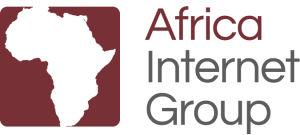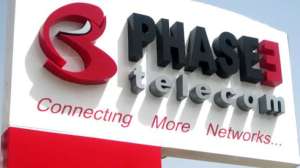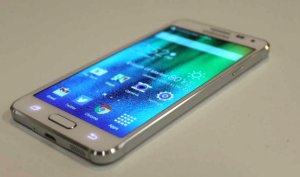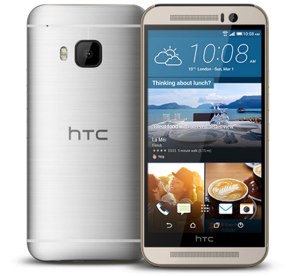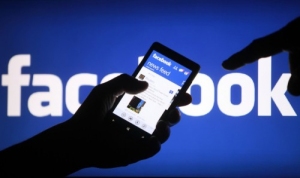Mozilla's
major new ally will sell its Klif phone and six months' network service
in 13 countries in Africa and the Middle East. Orange likes Firefox
OS's inexpensive hardware requirements and expects to sell millions.
The
Orange Klif is Firefox OS phone that the French carrier will sell in 13
African and Middle Eastern countries starting in the second quarter of
2015. The price of up to $40 includes six months of voice, text, and
data service.The Orange Klif is Firefox OS phone that the French carrier
will sell in 13 African and Middle Eastern countries starting in the
second quarter of 2015. The price of up to $40 includes six months of
voice, text, and data service. Stephen Shankland/CNET
The
Klif, announced at the Mobile World Congress show, the move is a
ringing endorsement of Mozilla's Firefox OS plan, which aims to break
down some of the barriers in the mobile market by spreading its
browser-based operating system. Mozilla concluded that the market most
vulnerable to attack is a super low-budget category in developing
nations, where Google's Android operating system isn't an option because
it requires more powerful, expensive hardware.
"We
will address this part of the population who still don't have access to
the Internet," said Yves Maitre, Orange's executive vice president of
connected objects and partnerships. "In this part of the world, the
smartphone penetration is 11 percent. In sub-Saharan countries, it's
around 5 percent."
Smartphones
have swept the world, providing new ways for people to communicate,
share photos, purchase products, play games, watch video and learn
what's going on. But the novelty has worn off in wealthier countries,
where smartphone market is relatively saturated. Developing countries,
in contrast, are ripe for growth.
Orange
will sell the phone with voice and text-messaging services, but it's
the 500MB per month of 3G data service that the company thinks will
stand out. And even though it's inexpensive, it'll still be profitable
for the company, even if customers don't stick with Orange beyond the
initial six-month period.
The
phone package will go on sale in the second quarter in 13 countries --
Egypt, Senegal, Tunisia, Cameroon, Botswana, Madagascar, Mali, Ivory
Coast, Jordan, Niger, Kenya, Mauritius and Vanuatu. Orange today has 180
million customers. Orange, which has 97.5 million customers in Africa
and the Middle East, also does business in Equatorial Guinea, Guinea
Bissau, Guinea Conakry, Morocco, the Republic of Central Africa and the
Democratic Republic of Congo, so it's a major ally for Mozilla.
Maitre wouldn't detail how Firefox OS phone sales projections, but said, "We expect millions."
The
Middle East and Africa should see 33 percent growth in 2015, according
to analyst firm GfK. The area has "significant room for growth as
consumers migrate from feature phones and existing smartphones to trade
up to a bigger screen."
Android
has taken off, though, even if not everyone can afford it. In the
fourth quarter of 2011, only 4 percent of phones shipped with Google's
OS in the Middle East and Africa, but by 2014, it rose to 42 percent,
GfK said. Meanwhile, feature phone shipments dropped from 80 percent to
49 percent during that period.
Mozilla's
Firefox OS competes chiefly against Apple's iOS and Google's
Android.Mozilla's Firefox OS competes chiefly against Apple's iOS and
Google's Android. Mozilla
The
Klif won't compete against flagship phones arriving at Mobile World
Congress like the Samsung Galaxy S6 or the HTC One M9. But it is a good
phone, Maitre said.
"When
the working group started on this proposal, we all decided either we
would reach something really breakthrough with good quality or we don't
do it," Maitre said. "We don't want is to give something low-level."
The
phone itself has a 3.5-inch 480x320 screen, a 2-megapixel camera, 512MB
of storage, 1300mAh battery and 256MB of memory. Powering it is a 1GHz
MediaTek processor that's exclusive to Orange, said marketing director
Guillaume de Riberolles.
So how much cheaper is it than an Android smartphone?
The
company's cheapest Android phone, the Pixi, costs about 40 percent more
than the Klif, and that's with no data plan, Maitre said. "The hardware
specs requested by Android Lollipop are much higher than the ones we
have with with Mozilla's Firefox OS 2.0 and 2.2 at the end of the year,"
he said.
Why Firefox OS?
It
wasn't just a matter of price, though. Firefox OS also works in local
languages that Android doesn't support, he added, and Mozilla supports
carrier billing in countries where Google still only accepts payments by
credit card.
"We hope a partner like Google will realize they need to open their billing system," Maitre said.
Firefox
OS also doesn't require any signup -- no Gmail account, for example --
and even works with customers who are illiterate, Maitre added.
"They
should be able to take the phone out of the box and start using it
without creating any email account," Maitre said. "With Mozilla, you
take phone, put in the battery, put in the SIM card, and you run. That's
it.
Most of these people are not used to complicated registration. It
is a little bit scary to go away from feature phone."
Firefox
OS got its big start in Latin America but also is an option in eastern
Europe, India, and some Asian nations. Until now, though, Mozilla didn't
have any carrier partners bringing the technology to Africa.
"This
is an important step for us," said Mozilla Chief Technology Officer
Andreas Gal about the push to Africa and the Middle East. It also will
help the company push to Firefox OS 2.0, the first version to support
right-to-left languages like Arabic.
Orange is a Firefox OS fan, but it's not dropping its Android line.
"We've
been absolutely successful with the Pixi. We will not stop selling it.
It's not addressing the same market segment," Maitre said.
And
Firefox isn't perfect, either, added Jean-Marc Polga, Orange's device
program manager. It needs even more local-language support, for one
thing. "We also want to see them develop the ecosystem," meaning Mozilla
needs to encourage more programmers to write apps that are relevant.
"That's one area they're going to have really start to work on."
Source: Balancingact-Africa


